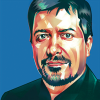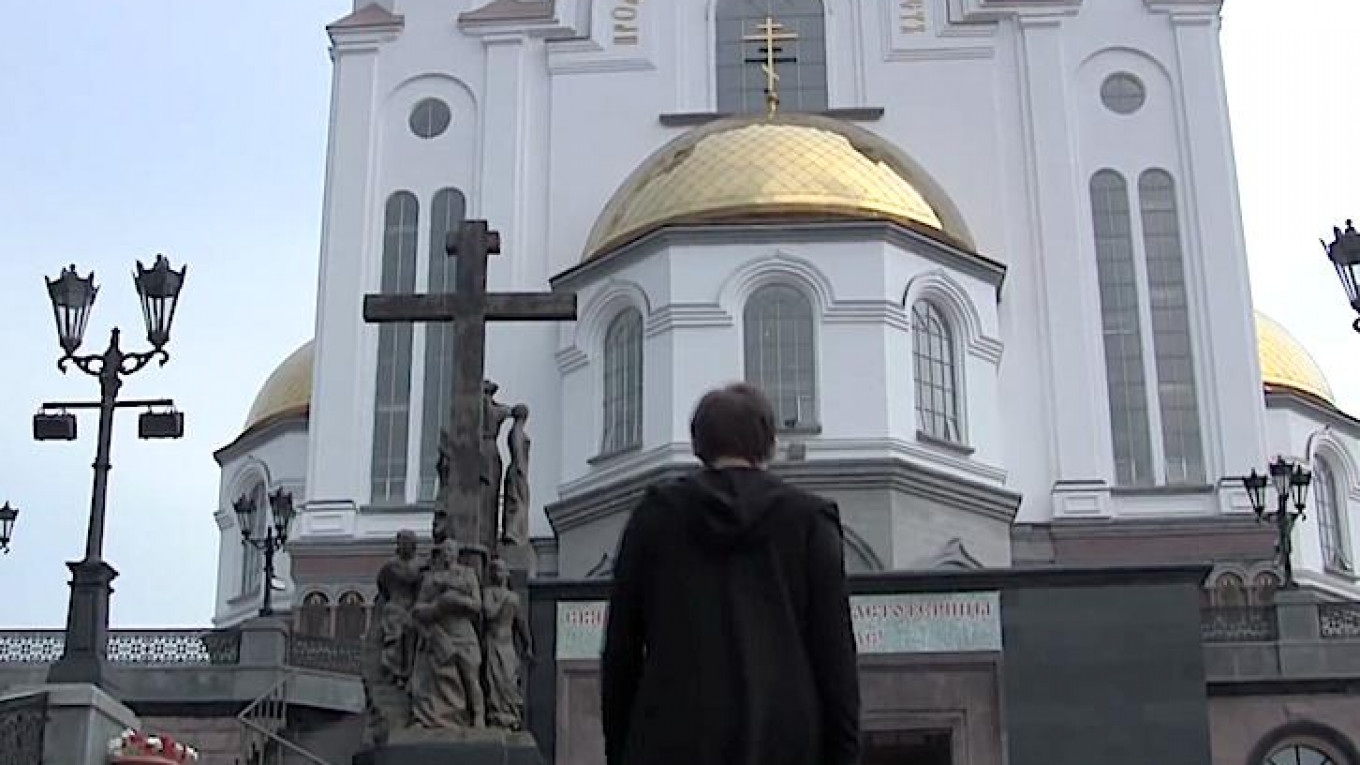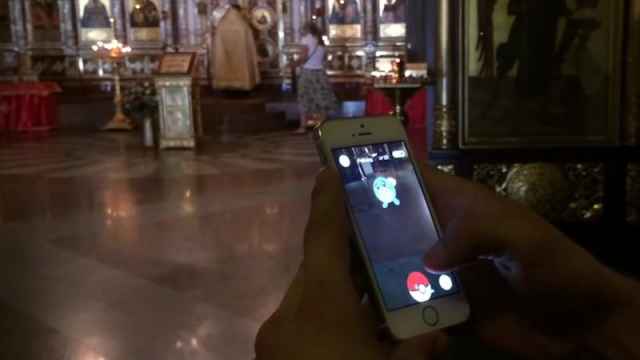A court in Yekaterinburg ruled on Saturday to arrest a young man for playing Pokémon Go in one of the city’s Russian Orthodox cathedrals and posting a video about it on YouTube.
Ruslan Sokolovsky, 22, made the video because, he said, he was annoyed to learn, from a state-run television channel, that playing Pokémon Go in a church might carry a penalty of half a million rubles or up to three years in jail.
He now may end up getting up to five years because the prosecutors heaped an additional charge of “inciting hatred” on top of the expected charge of “public behavior showing disrespect to society and carried out in order to offend the feelings of religious believers.” The Russian Criminal Code was amended in 2013 to include the latter article, essentially a blasphemy law, after the punk group Pussy Riot performed in a Moscow cathedral in 2012.
Three of the group’s members were convicted in 2012 for “premeditated hooliganism.” “Sokolovsky is 22, the same age I was when I started serving my sentence,” Nadya Tolokonnikova, one of the Pussy Riot participants, wrote on Twitter on Saturday.
In Sokolovsky’s video a young man is seen walking around the cathedral staring at his smart phone, catching virtual creatures and causing offense to none of the flesh-and-blood churchgoers, very few of whom were present anyway. His choice of venue was controversial, though: Ruslan was filming his piece in the Temple on Spilled Blood, a commemorative church built on the site of the murder of Russia’s last emperor, Nicholas II, and his family.
Sokolovsky, who studies law at the Ural Institute for the Humanities, is not a goody-goody kind of guy. He revels in controversy in the diverse and vibrant world of video blogging, where he has built a following of 270,000 mostly teenage subscribers. In conversation with these young people, engrossed as they are in gaming and celebrity gossip, he brings up political and social issues, bashes organized religion, and calls the Russian Orthodox Church a “sect.” Sokolovsky recently started an anticlerical magazine inspired by the irreverent French publication Charlie Hebdo, an unorthodox path to fame in every sense of the word.
Few people in Yekaterinburg doubt that Sokolovsky is being punished for his views. The exact charges are kept secret: The court has refused to open the proceedings to the public. But it is clear that all charges are based on what Sokolovsky has said in his videos, such as calling Jesus the “rarest of Pokémon,” the only one he could not catch.
The Russian Orthodox Church may or may not have played a role in having the blogger prosecuted, but many in Yekaterinburg are convinced it did. “For hundreds of thousands of young people who probably did not care before, but do care now, the Orthodoxy has now become a synonym for evil and aggressive police rule,” Fedor Krasheninnikov, a well-known Yekaterinburg intellectual, wrote on Facebook.
It may very well be that this is exactly the kind of effect the authorities are aiming at: the young man is persecuted, the Church is no help or even complicit, society is too weak to step in. The case has been all over state-run television channels, and it was circulated for a reason. The highly publicized spectacle of a young rebel being arrested for blasphemy is one of those teaching aids the Kremlin loves to use to get its message across.
There are 26 people in Russia who have been convicted for saying things in public: in their articles, on their blogs, or on social media. Sokolovsky may become the 27th. It is a lot, but one need only compare this number to Turkey's recent record of up to 150 journalists arrested, 17 of whom were charged with terrorism, to see the difference.
The Kremlin does not really need many trials. Unlike in the 1930s, it did not take mass show trials in the 2000s to explain to Russia’s principal political actors that their stakes in decision making and their access to assets were contingent on their availability to cover all those loosely defined “strategic” projects. It took just one major case, that of Mikhail Khodorkovsky, and a few minor ones to establish the point. The rest grasped it.
A major crackdown was not required to explain to Russian society that most independent NGOs were paid for by foreign governments and therefore were not really independent. Thousands of cases of people jailed on trumped-up political charges were not needed to make sure people understood that political protest is counterproductive. Isolated but massively advertised prosecutions have worked wonders for the Kremlin’s political managers.
I would not be surprised if the young Pokémon Go player from Yekaterinburg got a light sentence or no sentence at all. The important question is who will be the savior. I doubt that it will be a church official. Their role is to play hard-line traditionalists. Admittedly, the local bishop, Metropolitan Kirill of Yekaterinburg (not the Patriarch Kirill), spoke in favor of the arrested blogger Sokolovsky. “I have asked my staff to look into it and find out what is a legal way to influence the fate of this man. […] We are not bloodthirsty, we just don’t want this kind of thing to spread any further,” the bishop said.
Now, whether this is a message of support is a hard question to answer. Maybe he just couldn’t afford to say more. It may sound paradoxical, but the Kremlin is striving to emerge not just as the strongest player but also as the most benign. Even the church, the traditional Russian Orthodox Church, is too traditional, too archaic, for citizens to rely on for moral support in modern everyday life. Other traditional faiths are the same or even worse: jihadist militants, for example, emerged from areas that were strongholds of a traditional faith. The only institution capable of providing some protection, the last and only resort, is the Kremlin and its current ruler.
In Russian, we call cases like this “resonance cases.” This is an apt way of putting it: they create waves. Every publicized court case is intended as a lesson. Whether they are taken and accepted as such is society’s call. So far society has been a fast learner and the Kremlin a successful professor. My explanation for the success of this teaching method is that most of the actual learning took place earlier, between the 1930s and the 1970s. The teaching may not be as easy when people like Sokolovsky go on to take up important jobs and positions of power. Unless they learn their lesson now.
Maxim Trudolyubov is a senior fellow with the Kennan Institute and editor-at-large with Vedomosti. This Op-Ed originally appeared on The Russian File: A Kennan Institute Blog.







